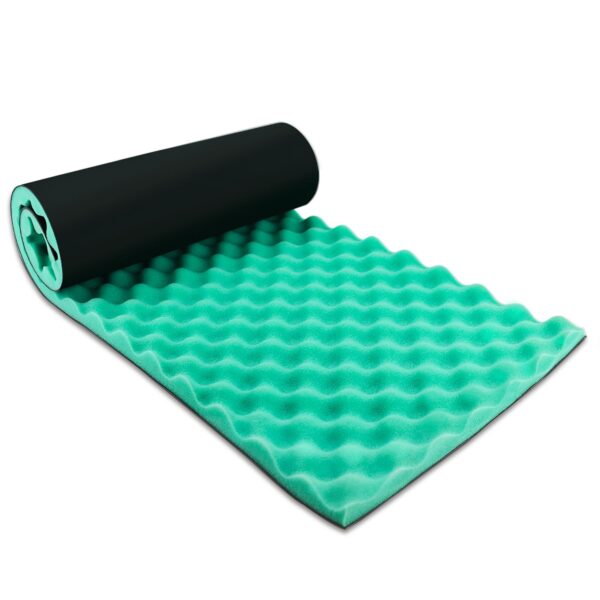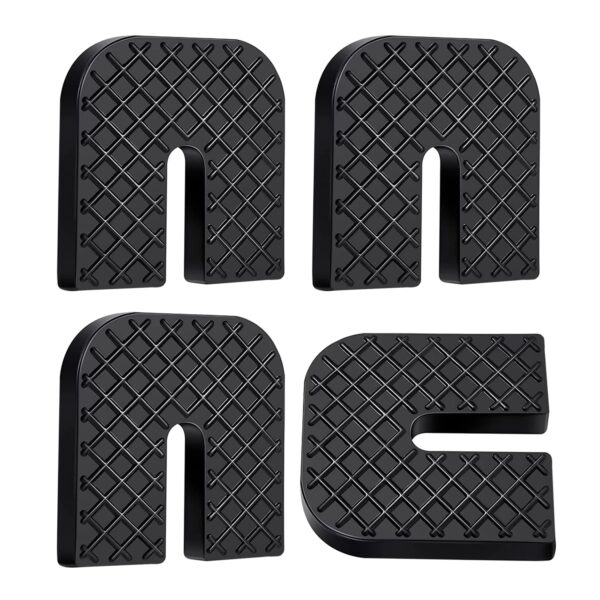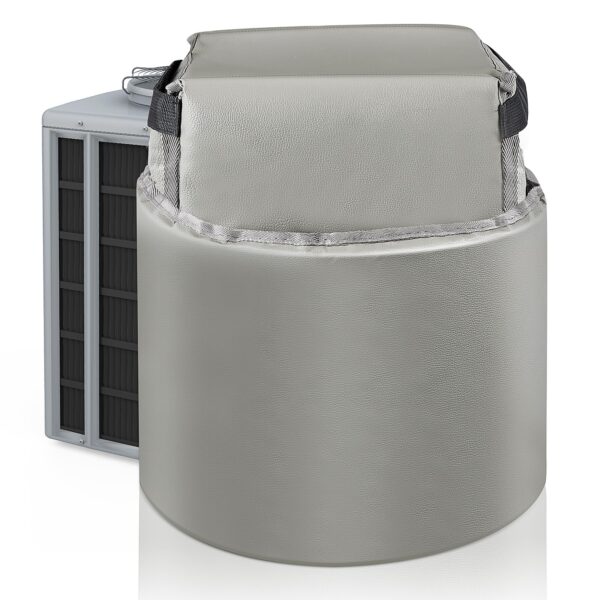Air conditioning units are a sanctuary from the sweltering heat, but a loud AC can quickly turn into a source of frustration. Modern air conditioners are designed to operate quietly, so when the noise levels rise, it's often a signal that something is amiss.
## Understanding and Identifying AC Noise
Understanding and identifying the source of AC noise is crucial. Regular humming is typically normal, but noises such as hissing, banging, or rattling often point to mechanical problems. Recognizing these sounds early can prevent major system damage and maintain indoor comfort and efficiency.
A YouTube video, embedded here, offers additional insights into common AC noise issues and their potential solutions, empowering homeowners with practical knowledge.
### Common Causes of a Noisy AC
- **Loose or Broken Parts**: Vibrations from loose components may create humming or rattling, while issues with fan blades, the compressor, or blower motor can lead to banging or buzzing sounds.
- **Refrigerant Leaks**: High-pitched whistling or hissing may indicate such leaks, affecting performance and potentially damaging the compressor.
- **Dirty Components**: Accumulated dirt in air filters or condenser coils can clog the system, causing unusual noises. Routine cleaning is vital to maintain a quiet and efficient unit.
- **Electrical Issues**: Clicking or buzzing sounds can arise from faulty wiring, necessitating immediate professional attention due to safety hazards.
- **Outdoor Debris**: Leaves or branches trapped in the outdoor unit can cause rattling noises, which regular maintenance can prevent.
- **Ductwork Issues**: Hissing or popping could result from leaks or expansion in ductwork, impacting efficiency and requiring quick attention.
### DIY Troubleshooting Steps
- Clear debris from the outdoor unit.
- Tighten all screws, parts, and connectors.
- Replace dirty air filters to enhance airflow.
When these remedies aren't enough, calling an HVAC specialist is the best approach. Professionals can perform thorough diagnostics and repairs, especially for complex issues like refrigerant leaks or compressor problems.
Routine maintenance is crucial for prolonging the lifespan of your air conditioning unit, akin to regular health check-ups, preventing small issues from escalating into significant repairs.
### Noise Diagnostic Table
To help diagnose the source of troubling noises, refer to this table of common sounds and their potential causes:
| Noise | Potential Cause |
|------------------|--------------------------------------|
| Humming | Loose parts or fan blades |
| Whistling/Hissing| Refrigerant leak |
| Banging/Buzzing | Compressor or motor issues |
| Rattling | Debris in outdoor unit |
| Clicking/Buzzing | Electrical issues |
For a more scientific analysis, comparing your unit's noise against typical decibel levels of everyday sounds can be helpful. If you're based in New York City, understanding the local noise code and its regulations is also important. In cases where AC noise affects your health, such resources offer guidance on the public health impacts of noise pollution. Persistent issues can be addressed through platforms like the NYC 311 portal, ensuring effective resolution.

If a loud AC is disrupting your peace, consider the BXI Double Noise Insulation Soundproofing. As observed in the product visuals, BXI's acoustic foam showcases a dual-layer design, combining a dense noise-absorbing mass with a convoluted acoustic foam layer to enhance sound insulation. Its vibrancy in color and the unfolding form illustrates an easy-to-install solution that can be cut to fit various spaces, directly addressing noise issues with air conditioning units. Offering both functionality and aesthetics, this soundproofing material promises a quieter environment, enhancing your home's comfort.
Find your silence with the BXI Double Noise Insulation Soundproofing.

Combating AC noise starts with addressing vibrations, which is where the Isolator Conditioner Vibration Conditioning Condenser shines. Designed to dampen noise and reduce maintenance, this product is a game-changer for those plagued by loud AC units. The set includes four thoughtfully designed pads, each with an interlocking grid pattern capable of superior vibration absorption, as showcased in the images. Not only do they promise a quieter environment, but they also extend the life of your equipment by minimizing the wear caused by excess movement.

The relentless hum of an AC unit can fray any nerve, but the Pangda Conditioner Compressor Insulation Reduction steps in as a serene solution. The detailed image showcases the sleek design of the insulation cover, promising an aesthetic appeal along with noise suppression. Its high-quality materials reflect a commitment to durability, ensuring long-term service. By efficiently muffling the dissonant racket, this product offers a tranquil environment, enhancing both comfort and focus in your daily life. Additionally, the simplicity in its installation process, visible in the image, hints at user-friendliness, making it a worthy addition to any loud AC unit's arsenal. Discover a quiescent retreat from the blare by incorporating this essential accessory into your home or workplace. Find serenity with Pangda's insulation cover.
## How do I make my air conditioner quieter?
Here are our suggestions for dampening AC noise:
1. **Place Sound Barriers Around the AC Unit**: Although achieving a completely silent operation isn't possible, there are several ways to muffle or reduce noise. Plant shrubs or install a fence around your AC unit to help absorb sound. Ensure these barriers don't obstruct airflow.
2. **Schedule Routine Maintenance**: Regular maintenance can prevent noise issues by ensuring parts are in optimal condition. Have a professional check for any loose components, adjust belts, lubricate motors, and replace worn-out parts.
3. **Install a New Air Conditioner**: If your current unit is too loud despite all efforts, it might be time for an upgrade. Newer models are designed with noise-reduction technology, providing quieter operation.
## Is a loud AC bad?
Yes, if you notice a loud and disruptive sound from your air conditioner, it often signals a moderate to severe issue. These noises could indicate problems such as a failing compressor, loose components, or a refrigerant leak. It's essential to seek professional advice to diagnose and fix the problem promptly to prevent further damage or decreased efficiency.
## How to fix a noisy AC fan?
Common causes of air conditioner noise include loose parts, dirty filters, improperly mounted units, debris around the unit, and bent or damaged fins. To fix these:
- Tighten any loose screws and bolts.
- Clean or replace dirty filters to ensure unobstructed airflow.
- Secure unit mounts to prevent rattling.
- Clear away debris around the unit to prevent any obstructions.
- Straighten bent fins using a fin comb to maintain efficient airflow.
## Why does my AC sound like a helicopter?
If your AC sounds like a helicopter, one of several mechanical issues might be at play with either the indoor blower or the outdoor unit. This sound often originates from bad bearings in the indoor blower fan motor or a faulty fan in either unit. It’s crucial to address these problems swiftly to avoid further damage. Consider reaching out to a professional technician to accurately diagnose and resolve the issue.
So, if the commotion of your AC unit is driving you up the wall and you want to dive deeper into the mechanics of a more peaceful home, we’ve got you covered. Understanding those whirs, clicks, and clunks better equips you for a squeak-free summer. And speaking of staying cool, why not join us on our adventures beyond the blog? Follow us on Pinterest for a visual feast of home design hacks, or keep up-to-date with our latest tips and tricks through our lively gallery on Instagram. Want insights on the go? Catch our quick thoughts and trendy updates on X (formerly Twitter). And of course, we’d love to keep the conversation going on Facebook, where we regularly connect with our community of fellow comfort connoisseurs. Here’s to quiet comfort and connected living!
